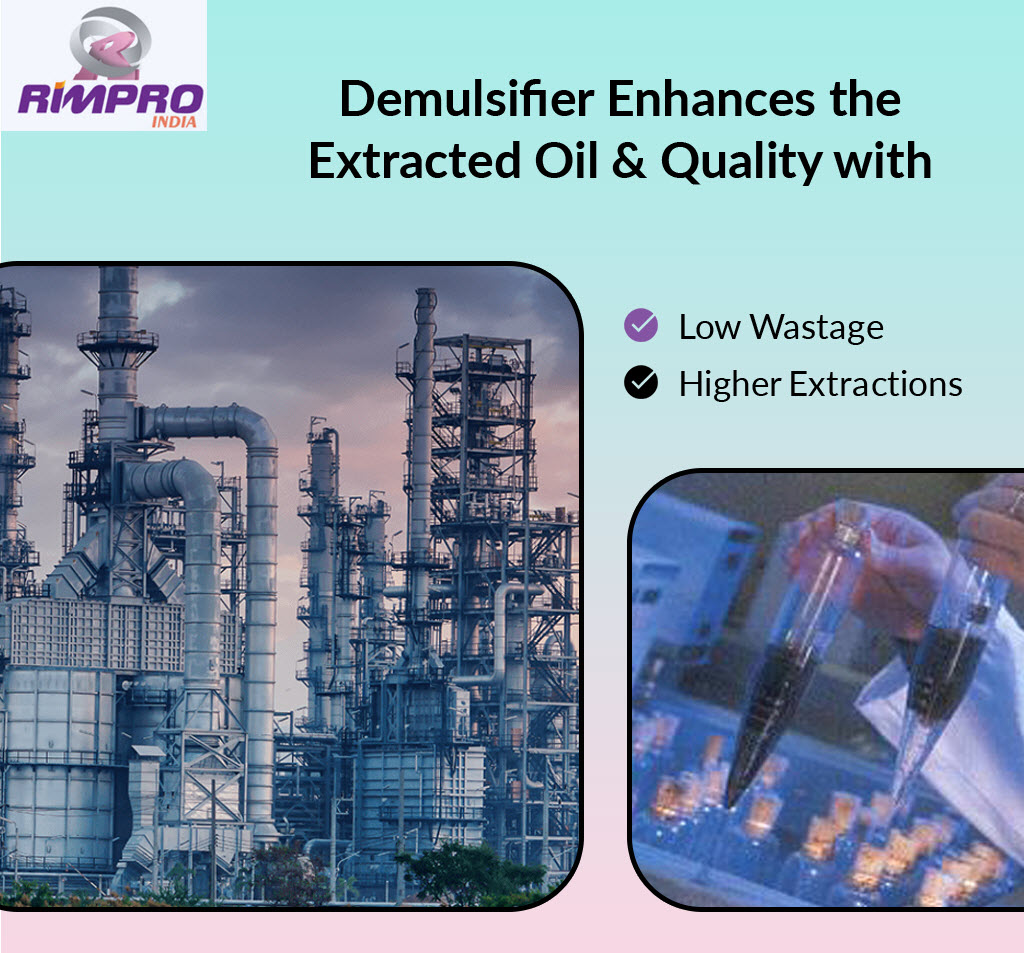 Menu
Menu
Transforming the Oil Industry with Advanced Demulsifiers
The oil industry is a complex ecosystem with numerous challenges, including the presence of water in oil emulsions. Emulsions are mixtures of oil and water that occur naturally during the oil extraction and production process. These emulsions can hinder the separation of oil and water, leading to operational inefficiencies and increased costs. Advanced Demulsifiers offer a solution by effectively breaking down these emulsions and facilitating the separation process.
Need for Demulsification
Demulsification is a critical step in oil production as it allows for the efficient separation of water and oil. When emulsions are broken down, water can be easily removed, improving the quality of the oil and reducing transportation and processing costs. Demulsification also helps to prevent corrosion, fouling, and other operational issues that arise due to the presence of water in the oil.
Traditional Demulsifiers vs. Advanced Demulsifiers
Traditional demulsifiers have been used in the oil industry for many years. However, advancements in demulsifier technology have led to the development of advanced demulsifiers that offer superior performance and efficiency. Unlike traditional demulsifiers, which mainly rely on surface-active agents, advanced demulsifiers utilize a combination of surface-active agents, co-surfactants, and other specialized chemicals to achieve enhanced demulsification.

Advantages of Advanced Demulsifiers
Advanced demulsifiers provide several advantages over their traditional counterparts. These include:
Improved Separation Efficiency
Advanced demulsifiers are designed to break down emulsions more effectively, resulting in higher separation efficiencies. This means that a greater amount of water can be removed from the oil, leading to higher-quality crude oil and reduced processing costs.
Faster Demulsification Rates
Compared to traditional demulsifiers, advanced demulsifiers have faster reaction rates. They work efficiently and rapidly, reducing the overall processing time required for demulsification. This not only improves operational efficiency but also allows for increased production rates.
Customizable Formulations
Advanced demulsifiers offer the flexibility of customizable formulations. Oil producers can tailor the demulsifier composition according to specific emulsion characteristics, such as temperature, salinity, and oil viscosity. This customization ensures optimal performance and adaptability to varying field conditions.
Reduced Chemical Consumption
By utilizing advanced demulsifiers, oil companies can achieve significant reductions in chemical consumption. These demulsifiers are highly efficient in smaller dosages, leading to cost savings and minimizing the environmental impact associated with chemical usage.
Compatibility with Existing Systems
Another advantage of advanced demulsifiers is their compatibility with existing oil production systems. They can be easily integrated into the existing infrastructure without the need for major modifications or equipment replacement, saving time and resources during implementation.
Applications in Oil Production
Advanced demulsifiers find application in various stages of oil production. Some key areas where they are utilized include:
Desalting
Desalting is a crucial process that involves the removal of salt and other impurities from crude oil. Advanced demulsifiers aid in efficient desalting by facilitating the separation of brine and oil, resulting in cleaner and higher-quality crude oil.
Dehydration
Dehydration involves the removal of water from crude oil. Advanced demulsifiers play a vital role in breaking down water-in-oil emulsions, allowing for effective water removal and improved oil quality.
Produced Water Treatment
During oil production, a significant amount of water is co-produced along with the oil. Advanced demulsifiers help in treating and separating this produced water, making it suitable for disposal or potential reuse, thereby reducing environmental impact.
Enhanced Oil Recovery (EOR)
Advanced demulsifiers also contribute to enhanced oil recovery techniques. By effectively breaking down emulsions and reducing the viscosity of oil, they enhance the efficiency of secondary and tertiary recovery methods, leading to increased oil production from reservoirs.
Environmental Benefits of Advanced Demulsifiers
The adoption of advanced demulsifiers in the oil industry brings about several environmental benefits. These include:
Reduced Chemical Discharge
By using advanced demulsifiers, the amount of chemicals discharged into the environment can be minimized. The efficient separation of water and oil reduces the need for large volumes of chemical additives, thereby decreasing the environmental impact associated with chemical discharge.
Water Conservation
Advanced demulsifiers enable the effective removal of water from oil emulsions, resulting in water conservation. By minimizing water usage and improving water recycling and treatment processes, the oil industry can contribute to the preservation of this valuable resource.
Lower Energy Consumption
Efficient demulsification achieved through advanced demulsifiers can lead to lower energy consumption in oil production. Reduced processing times and improved separation efficiencies translate to energy savings, thereby reducing the carbon footprint of the industry.
